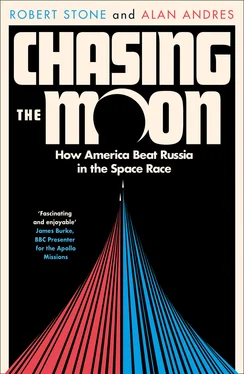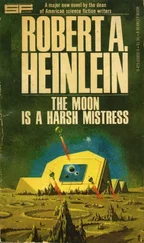The little news that trickled out of Russia indicated that nearly all interest in rocketry had subsided under the Five-Year Plan. And in the United States, by the time Clarke read The Conquest of Space, the life of the book’s author had changed dramatically as well. While promoting interest in space travel, David Lasser had discovered he had a natural talent for organizing people, planning events, and generating public attention. Not long after the screening at the Museum of Natural History, he began to devote a portion of his time to socialist politics and organizing to effect political change. Unemployment in the United States was approaching 25 percent; in Lasser’s Greenwich Village neighborhood, nearly 80 percent of the residents were out of work. He believed the most important question before the country at that time wasn’t human space travel but reducing unemployment. For the moment, space would have to wait.
Lasser’s boss took a dim view of his political activism. Hugo Gernsback wanted him in the office every day, editing the latest issue of Science Wonder Stories, rather than taking time off to consult with the mayor of New York on unemployment issues. Exasperated, Gernsback summoned Lasser into his office and told him, “If you like working with the unemployed so much, I suggest you go and join them.” Fired by the world’s leading publisher of science fiction, Lasser’s short career as America’s first advocate for space travel came to an end as well. His career change took him to an important job in Washington, D.C., where he was tapped to run the Workers Alliance of America, a trade union for those temporarily employed by the Works Progress Administration of President Franklin Roosevelt’s New Deal.
At nearly the same moment that he dismissed David Lasser, Gernsback made a second decision that would significantly impact the life of Archie Clarke, a continent away. Eager to increase customer loyalty for his magazines, Gernsback introduced a readers’ club, the Science Fiction League, the world’s first science-fiction fan organization. Within a few months it had close to one thousand members, spread among three continents. Not long after, they began publishing unaffiliated newsletters, engaging in private correspondence, and traveling to meet one another.
One of Gernsback’s competitors, Astounding Stories, started publishing readers’ letters in its pages, including the correspondents’ addresses. While poring through one of those issues, Archie Clarke read that a British Interplanetary Society had been founded in Liverpool a few months earlier. Now sixteen and having suddenly discovered a community of like minds, Archie wrote to the British society’s secretary, volunteering his services. “I am extremely interested in the whole subject of interplanetary communications, and have made some experiments with rockets.” To impress the society’s board, he added that he had “an extensive knowledge of physics and chemistry and possess a small laboratory and apparatus with which I can do some experiments.”
Within two years he had assumed a position of leadership as one of the society’s most influential board members.
ON ITS FINAL transatlantic voyage, in 1935, the Cunard–White Star liner Olympic arrived in New York City, a day late after encountering severe February winds. Journalists who met the ship at the pier reported that one of the passengers, Mr. Willy Ley of Berlin, age twenty-eight, would be spending seven months in the United States, working with Americans on a project to transport the mail by rocket.
One of the founders of the Verein für Raumschiffahrt, Ley had studied astronomy, physics, and zoology at the universities of Berlin and Konigsberg, and by the mid-1920s he had become one of Germany’s leading advocates for human spaceflight. He was among the society’s strongest voices against rocket-weapons research, believing that rockets should be used for peaceful scientific and exploratory pursuits exclusively. Ley had been disdainful of Max Valier’s stunts with his rocket-powered car but was all for raising public awareness about spaceflight via popular entertainment. He worked with Fritz Lang during the making of Frau im Mond and had become the filmmaker’s close friend. Ley had even written a science-fiction novel, Die Starfield Company, an adventure in which the hero battles with space pirates that also includes an interracial love story and a parable about international cooperation.
In his leadership role with the Verein für Raumschiffahrt, Ley had been in contact with rocketry researchers and space-travel societies around the world, and he continued to do so until 1933, when the Nazis prohibited any exchange of technical and scientific information about rocketry with citizens of foreign countries. A strong believer in furthering intellectual inquiry through the free exchange of ideas, Ley was deeply bothered by what was happening in Germany.
He watched as scientists and researchers in many disciplines were purged from German academic institutions—primarily for racial reasons—and learned that selected scientific publications were being removed from library shelves. On university campuses, the Nazis conducted public book burnings. Besides scientific works by Albert Einstein and Sigmund Freud and literature by Bertolt Brecht and Thomas Mann, the Nazis had also consigned many classic works of science fiction to the bonfires.
As he read the news and talked with acquaintances, Ley was alarmed as things he had long opposed were gradually accepted as part of everyday life: a cult of loyalty and blind patriotism, militarism, anti-globalism, superstition, and pseudoscience. While Germany touted its reputation for excellence in the sciences, Ley observed how politics had begun to encroach on the scientific method, and positions formerly held by Jewish scientists were filled by less qualified opportunists. His friend Fritz Lang had already fled Germany, and Ley decided he had no other choice but to do the same. He would pretend to leave for a brief vacation in England but knew it likely he would not return home for years.
Members of both the British Interplanetary Society and the American Rocket Society—the new, more serious-sounding name of the American Interplanetary Society—came to Ley’s aid by securing him a visa and writing letters of support. Although he arrived in New York with little money, Ley was a recognized expert regarding recent rocket development in Germany and elsewhere in Europe. He was embarking on a new life, believing he would now assume a similar role in the United States.
Ley’s initial business venture in the United States generated publicity for collectable rocket-mail postal covers, but unfortunately it returned little income. He next attempted to find employment as a rocketry engineer but was surprised to encounter pervasive skepticism that a rocket could operate in the vacuum of space. Far more welcoming was the small community of science-fiction magazine editors and publishers, and out of necessity Ley began to support himself through his writing.
By the time Ley had arrived in the United States, Robert Goddard had become increasingly reclusive, having moved all his research to a secluded desert testing facility in Roswell, New Mexico. Noted aviation philanthropist Harry Guggenheim had stepped in to provide funding for his rocket research, thanks to the intercession of famed airman Charles Lindbergh as well as one of Goddard’s former students at Clark University, an aviation pioneer named Edwin Aldrin. (Aldrin was to become famous a little more than three decades later as the father of astronaut Buzz Aldrin, one of the first two men to land on the Moon.) Goddard’s continued secrecy aroused the suspicions of Ley, who considered the professor’s reputation in America overrated and unequal to the stature of Oberth. As he began to publish freelance articles about the current state of rocket development for American periodicals, Ley seldom gave Goddard’s work equal attention.
Читать дальше












